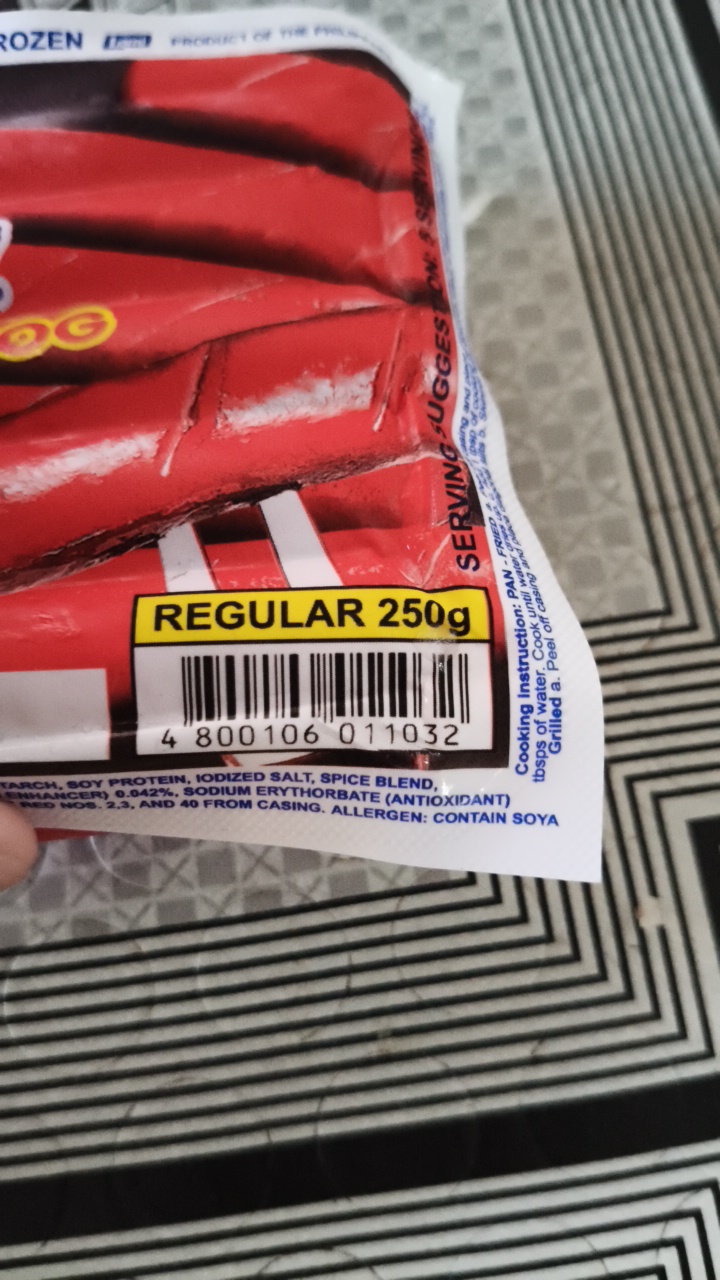
Barcode: 4800106011032
Regular Sausage
DOUBTFUL
📝 Reason: Check for Halal Logo
📄 Certificates: None
Ingredients:
Details
Understanding the Halal Status of Regular Sausage
When it comes to consuming meat products like sausages, it is vital to understand their Halal status, particularly for those adhering to Islamic dietary laws. Today, we delve into the Regular Sausage to uncover its ingredients and whether it is Halal.
Overall Halal Status: Doubtful
The Halal status of Regular Sausage has been categorized as Doubtful. This is primarily due to the lack of a Halal certification and potential concerns regarding specific ingredients used in the product.
Exploring the Ingredients
Regular Sausage is made from a variety of ingredients, each coming with its own set of concerns regarding Halal compliance. Let’s review each ingredient and its status.
- Corn Starch – Halal: This ingredient is naturally derived from corn and is considered Halal as it is plant-based. It poses no concerns in terms of Halal compliance.
Source - Soy Protein – Halal: Another ingredient that is plant-based and naturally Halal. Like corn starch, it doesn’t raise any red flags regarding Halal consumption.
Source - Iodized Salt – Halal: As a mineral-based product, iodized salt is also Halal and serves a fundamental role in food seasoning.
Source - Spice Blend – Doubtful: The Halal status of spice blends can vary substantially depending on the specific ingredients used in them. It is recommended to check the source of the spice blend if unsure or look for Halal certification.
Source - Sodium Nitrite (E250) – Doubtful: This preservative is commonly used to cure meats, but questions about its Halal status persist. Further checks are advised before consumption.
Source - Triphosphates (E451) – Halal with caution: Used as thickeners and emulsifiers, triphosphates can be Halal if sourced correctly. Caution is advised, as some may derive from non-Halal sources.
Source - Diphosphates (E450) – Doubtful: Like triphosphates, diphosphates are gelling agents that require careful consideration regarding their source and production methods.
Source
Product Certification
Regular Sausage does not carry any Halal certifications, which makes it imperative for consumers looking for compliant products to exercise caution. The presence of ingredients with uncertain sources further complicates its Halal status.
Conclusion
In conclusion, while components like corn starch, soy protein, and iodized salt are unquestionably Halal, other ingredients raise doubts due to potential non-Halal origins. Consumers are encouraged to check for Halal logos and certifications to ensure compliance with their dietary requirements. Always consult with the producer or relevant authorities if there’s any uncertainty. Making informed choices ensures adherence to Halal dietary laws and promotes overall well-being.

